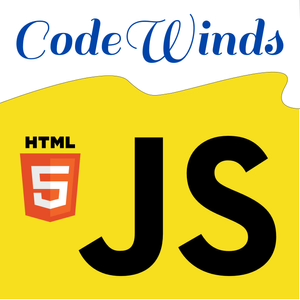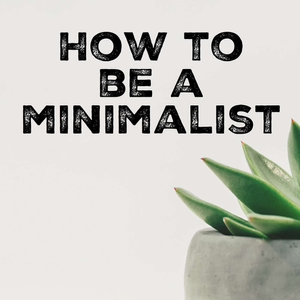
Indie Podcasters Need More Money Too
03/10/22 • 4 min
1 Listener
I read an article in the New York Times, “Surrounded by Big Tech, Small Podcast Shops Swim With Sharks.” The subheading reads, “Independent companies like Prologue Projects, Campside Media and Rococo Punch try different strategies in a market roiled by Silicon Valley and Hollywood.”
The first subject is Leon Neyfakh’s podcast production company, Prologue Projects, and how it needed to seek new funding for its fifth season of “Fiasco” after not getting renewed by Luminary.
The good news is that big tech companies like Amazon, Spotify, Apple and SiriusXM have spent billions in recent years acquiring or developing podcasts.
Here’s the bad news.
“Even if one isn’t swallowed by a bigger fish, the competition for advertisers — critical sources of revenue for many independent podcasters — has intensified as the platforms leverage advanced technology and user bases in the tens or hundreds of millions. Additionally, the sheer volume of new podcasts (Spotify alone now has nearly four million, up from 500,000 in 2019) has made it increasingly challenging to attract and keep audiences.”
Spoiler alert: After considering free, ad-supported, or paywalled models, Neyfakh pivoted “Fiasco” to Audible where the new season will premiere on March 24 as an Audible exclusive.
Wanting to learn more, I read Leon’s tweets.
[Visit www.podcastgym.com to read the tweets.]
Wow, $250,000 for a podcast!
As independent podcasters, many of us are used to producing content on a shoestring budget. What’s your budget? Is it in the hundreds of dollars? Maybe, thousands? Sadly, most of us cannot pay ourselves.
Soraya, an NPR editor, weighed in and upped the ante.
Soraya makes good points.
If we are to normalize million-dollar shows, indie podcasters need to step up too. We will need to get serious about monetizing so we can pay ourselves. If we build a great team, we need to pay them too.
Further, we can no longer focus solely on content creation. We must begin to treat our podcast as a business. That means reaching out to sponsors, considering crowdfunding on platforms like Patreon, and partnering with other independent podcasters.
Of course, it will vary depending on your show and audience. Think about what it may look like for your podcast.
It is time to go bigger.
Bigger episodes
Bigger collaborations
Bigger budgets
Make your podcast worthy of $1M.
What’s your budget for your podcast? What do you think about going bigger? Post a comment.
Mentioned in this episode:
Join and Subscribe
Visit www.podcastgym.com/newsletter to joing our community and subscribe to the Podcast Stronger newsletter.
I read an article in the New York Times, “Surrounded by Big Tech, Small Podcast Shops Swim With Sharks.” The subheading reads, “Independent companies like Prologue Projects, Campside Media and Rococo Punch try different strategies in a market roiled by Silicon Valley and Hollywood.”
The first subject is Leon Neyfakh’s podcast production company, Prologue Projects, and how it needed to seek new funding for its fifth season of “Fiasco” after not getting renewed by Luminary.
The good news is that big tech companies like Amazon, Spotify, Apple and SiriusXM have spent billions in recent years acquiring or developing podcasts.
Here’s the bad news.
“Even if one isn’t swallowed by a bigger fish, the competition for advertisers — critical sources of revenue for many independent podcasters — has intensified as the platforms leverage advanced technology and user bases in the tens or hundreds of millions. Additionally, the sheer volume of new podcasts (Spotify alone now has nearly four million, up from 500,000 in 2019) has made it increasingly challenging to attract and keep audiences.”
Spoiler alert: After considering free, ad-supported, or paywalled models, Neyfakh pivoted “Fiasco” to Audible where the new season will premiere on March 24 as an Audible exclusive.
Wanting to learn more, I read Leon’s tweets.
[Visit www.podcastgym.com to read the tweets.]
Wow, $250,000 for a podcast!
As independent podcasters, many of us are used to producing content on a shoestring budget. What’s your budget? Is it in the hundreds of dollars? Maybe, thousands? Sadly, most of us cannot pay ourselves.
Soraya, an NPR editor, weighed in and upped the ante.
Soraya makes good points.
If we are to normalize million-dollar shows, indie podcasters need to step up too. We will need to get serious about monetizing so we can pay ourselves. If we build a great team, we need to pay them too.
Further, we can no longer focus solely on content creation. We must begin to treat our podcast as a business. That means reaching out to sponsors, considering crowdfunding on platforms like Patreon, and partnering with other independent podcasters.
Of course, it will vary depending on your show and audience. Think about what it may look like for your podcast.
It is time to go bigger.
Bigger episodes
Bigger collaborations
Bigger budgets
Make your podcast worthy of $1M.
What’s your budget for your podcast? What do you think about going bigger? Post a comment.
Mentioned in this episode:
Join and Subscribe
Visit www.podcastgym.com/newsletter to joing our community and subscribe to the Podcast Stronger newsletter.
Previous Episode

Why 100 Rejections Will Make Your Podcast Greater
Life is 10% what happens to you and 90% how you react to it.– Charles R. Swindoll
Are you generally more fearful or fearless?
We all have our good days and bad days.
It’s got to be partly innate, a trait present from birth. Some people were born fearless. Others have to work hard to build their courage.
When it comes to rejection, fearing it is more universal. Really, who loves rejection!?
Get rejected consecutive times and even the most fearless warrior can feel the slump and have to shake off the funk.
Why face rejection at all? Often, it’s easier not to try.
DISCOMFORT
We know it’s easier to limit yourself to doing what’s comfortable. Staying in your lane feels good.
Think back to a real breakthrough or high achievement in your life. I’ll bet it required truly pushing yourself beyond what you thought was possible.
Growth most often takes place outside of your comfort zone.
Welcoming discomfort is easier said than done.
We need to develop a habit to get there.
TRAIN
Last week, I spoke at the Interview Mastery Summit where my session was, “Getting to Yes: Book Bigger Guests, Get Booked On Bigger Shows.”
In it, I touched on the mindset for booking bigger guests and getting booked on bigger shows.
Here’s a challenge for you. Commit to getting rejected 100 times this year. That’s 25 “no’s” per quarter.
It’s harder to do than you think. When you pitch, a nonresponse does not count. You must get a “no” reply.
Celebrating rejection will shift your mindset. Each time will still be disappointing, but you’ll quickly celebrate and move on. Ultimately, this gamification will encourage you to pitch more often and reach higher.
Don’t just take my word for it.
For background, this idea was inspired by Jia Jiang who sought out rejection for 100 days. He’s an expert!
If you haven’t watched his TEDTalk, it’s 15 minutes well spent.
Out of his video blog came the book, “Rejection Proof: How I Beat Fear and Became Invincible Through 100 Days of Rejection.”
Here are three highlights from Jia.
IN THE PROCESS OF MY REJECTION JOURNEY, HERE IS WHAT I LEARNED ABOUT REJECTION:
- Rejection is a muscle. If you don’t constantly work outside your comfort zone, you’ll lose it and you’ll become weak and timid.
- Rejection is a numbers game. Fight through enough no’s and you will eventually find a yes.
- Avoiding rejection is worse than receiving it. Most people believe avoiding rejection is a good thing, by avoiding something bad we’ve dodged a bullet and we are somehow net positive, but that’s not true. When we shy away from rejection we reject ourselves and our ideas before the world ever has a chance to reject them. This is the worst form of rejection and as a result, we are ignored by the world.
Let this be your new goal. Put yourself out there.
Where three rejections may add up to a slump, one hundred rejections will desensitize you to the fear.
Build that muscle!
Whether you apply this practice to your podcast, job, or other parts of your life, the magic lies in that you can never forecast where the “yeses” will come from.
So ask often and ask big!
Want to join me trying to get rejected 100 times?
Mentioned in this episode:
Join and Subscribe
Visit www.podcastgym.com/newsletter to joing our community and subscribe to the Podcast Stronger newsletter.
Next Episode

Getting Over Zero-Download Days
“If a man does not keep pace with his companions, perhaps it is because he hears a different drummer. Let him step to the music which he hears, however measured or far away.”Henry David Thoreau
I was told early on, “Don’t look at your downloads.”
Guess what? I looked at my downloads.
If I had zero downloads, I would still enjoy hosting my podcast.
To which a friend responded, “Then why do you bother editing?”
Touché. Good friends keep you honest, even if they’re a pain in the ass.
Ashley Carman wrote a very interesting article in Verge entitled, “How SiriusXM Bought and Bungled a Beloved Podcast Network: SiriusXM leapt into podcasts with a $325 million deal — insiders say it’s off to a messy start.”
Here’s Ashley’s tweet: https://twitter.com/ashleyrcarman/status/1506284893474537479
What do you think?
Is it getting harder to garner support and care?
Do your downloads define your success?
With the number of podcasts still growing, including those hosted by celebrities, it feels harder to get noticed.
But are we really competing against them?
I will never compete with Matthew freakin’ McConaughey.
While it can happen, most independent podcasters are a long way off from signing with a major podcast network.
Until you get there, be creative as hell. Niche down if you have to. Lean into you.
With the ups and downs of podcasting, it’s okay to cry on a friend’s shoulder, as needed. Or on the collective shoulder of podcasters that you don’t know.
Buck's tweet: https://twitter.com/2ndFiddles/status/1506372607704195081
I enjoyed reading all the replies to Buck’s tweet. Podcasters are pretty awesome.
Advice from Apple:What’s the best way to make your way on and up the charts? Make an incredible show that is unmissable for listeners!Try your best to not focus on downloads. Redirect your attention to your craft.
Big opportunities abound for podcasters, including new ones, to grow a loyal audience. Even small podcasts can be monetized.
I’ve been at this for over 4 years and have only just begun to focus on growth and monetization.
Hopefully, this old dog can learn new tricks. I plan to share tests and outcomes here.
I’d love to hear what you are doing.
Have a growth hack to share?
Are you making money from your podcast?
Leave a comment, please.
P.S. Make a sad happy by downloading Second Fiddles wherever you get podcasts.
Mentioned in this episode:
Join and Subscribe
Visit www.podcastgym.com/newsletter to joing our community and subscribe to the Podcast Stronger newsletter.
If you like this episode you’ll love

The Torch: The Great Courses Podcast

CodeWinds - Leading edge web developer news and training | javascript / React.js / Node.js / HTML5 / web development - Jeff Barczewski

Research in Action | A podcast for faculty & higher education professionals on research design, methods, productivity & more

How to be a Minimalist

The Edtech Podcast
Episode Comments
Generate a badge
Get a badge for your website that links back to this episode
<a href="https://goodpods.com/podcasts/podcast-gym-92144/indie-podcasters-need-more-money-too-19863249"> <img src="https://storage.googleapis.com/goodpods-images-bucket/badges/generic-badge-1.svg" alt="listen to indie podcasters need more money too on goodpods" style="width: 225px" /> </a>
Copy